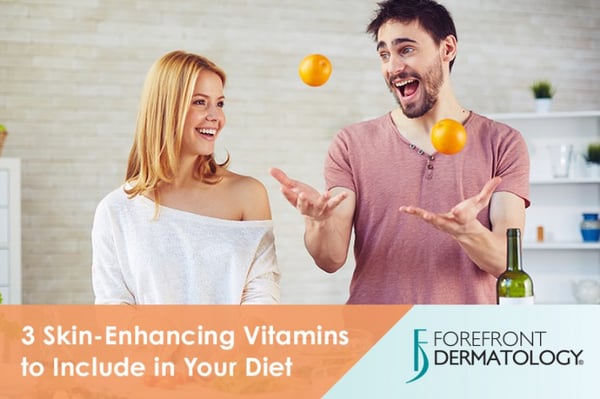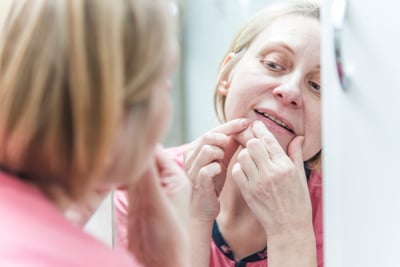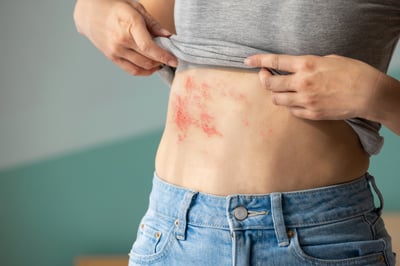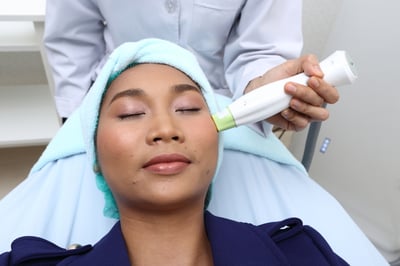
Just like your stomach or your lungs, your skin is an organ – in fact, it’s your largest one. And, just like it affects any other organ, your nutrition affects the health of your skin. But your skin isn’t a closed system. Your skin is your first (and best) defense against, well, everything. In addition to waterproofing and insulation, it protects your sensitive tissues from extreme temperatures, dangerous UV rays and harmful chemicals. Healthy skin is vital to a healthy you. So, in honor of National Nutrition Month, here are a few skin-enriching vitamins to work into your diet. Vitamin C Alone, Vitamin C is pretty awesome for your skin. Not only does it help maintain overall health, it helps produce collagen, the structural protein that keeps your skin looking firm and young. It prevents you from developing scurvy – a condition associated with skin lesions and pirates – which is far more common than one may think. Good Sources of Vitamin C: Citrus Fruit (Oranges, Grapefruit, etc.), Bell Pepper (Red, Green, Yellow), Strawberries, Kale, Brussels Sprouts Vitamin E Together with Vitamin C, Vitamin E is particularly important when it comes to reducing sun damage. In particular, fair-skinned individuals benefit most from the addition of Vitamins C and E to their diets in conjunction with regular use of sunscreen. Good Sources of Vitamin E: Leafy Greens (Spinach, Kale, etc.), Nuts (Almonds, Hazelnuts, Pistachios), Avocados, Shellfish & Fish, Plant Oils Vitamin D Your epidermis – the outermost layer of your skin – uses sunlight to synthesize Vitamin D. One of the many benefits of Vitamin D is its ability to protect and repair UV damage – a major cause of skin cancer. (Sunlight + Skin = Vitamin D. Vitamin D = Good. Got it? Sweet.) “As a dermatologist, I don’t recommend exposing your skin to undue rays just to up your Vitamin D levels,” says Dr. Betsy Wernli of the Manitowoc and Chilton, Wis. offices. “Not only can it lead to skin cancer – including squamous cell and basal cell carcinoma as well as the potentially deadly melanoma – it can also have cosmetic effects like wrinkles and premature aging. If you’re deficient in Vitamin D, seek out other sources like Vitamin D-rich foods or plain old supplements.” Good Sources of Vitamin D: High-Fat Fish (Trout, Salmon, Swordfish, etc.), Mushrooms, Tofu, Dairy Products Vitamin deficiencies and skin conditions go hand-in-hand. When “You are what you eat” turns into “Then what the heck did I eat?!” it may be time to seek out a medical professional. To better understand how your diet is affecting your skin, schedule an appointment with a physician at Forefront Dermatology. To find the Forefront physician nearest you, visit the Locations page today.





